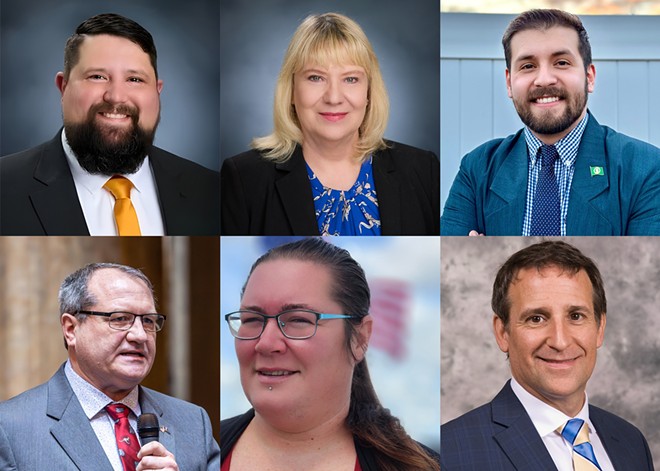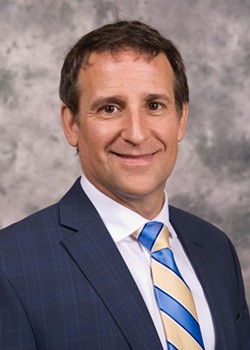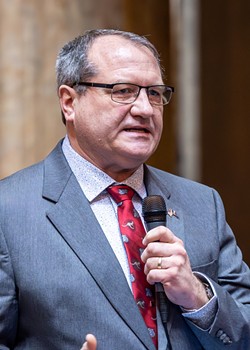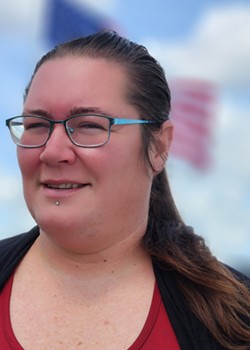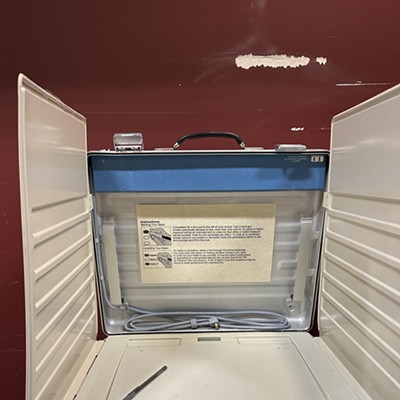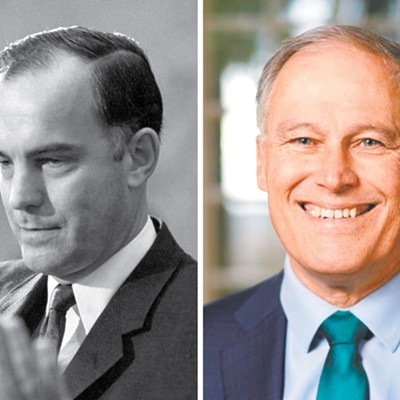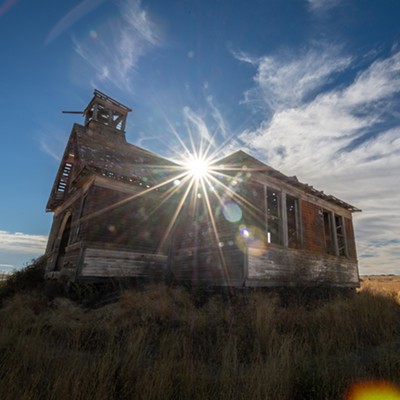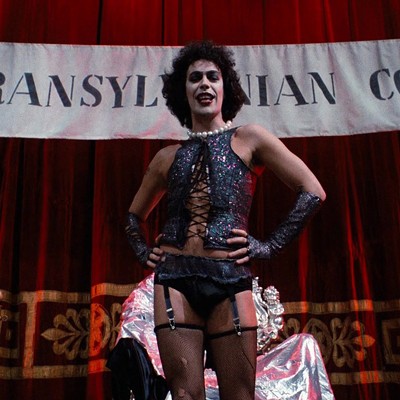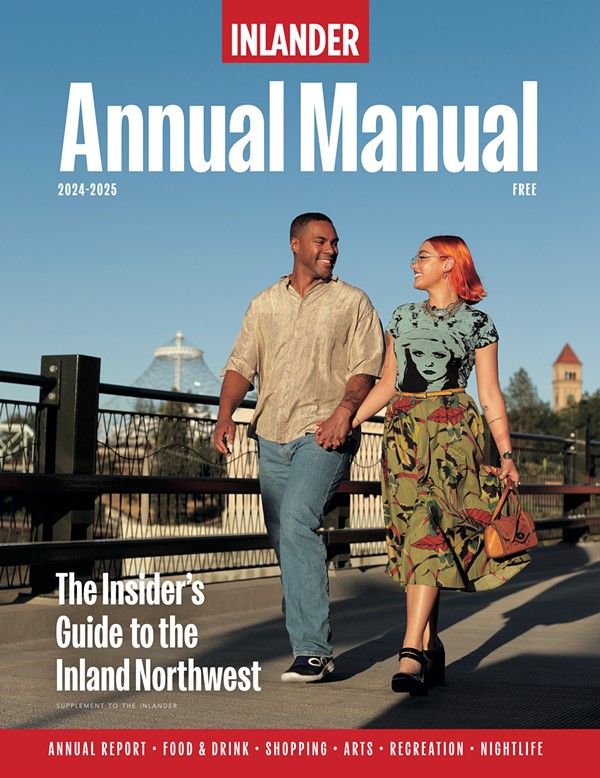The race to represent Washington's 4th Legislative District in the state Senate is dominated by candidates from Spokane Valley, though the district also covers Colbert, Green Bluff, Liberty Lake and Millwood.
Few among the four Republicans and two Democrats running for the state Senate seat have significant elected experience.
Spokane Valley Mayor Pam Haley, a Republican, who has more elected experience than any of her competitors, has served on the Spokane Valley City Council since 2016. In that time, she served a stint as deputy mayor and was later elected mayor in 2022 by her fellow council members.
One of her primary election competitors, fellow Republican Al Merkel, also serves on the Spokane Valley City Council. He was elected in November 2023 and has been on the council for less than a year.
Merkel says he uniquely plans to hold both offices if elected — maintaining his seat on the City Council and serving in the state Senate. Haley hasn't decided whether she would do the same.
While it might be taxing on an elected official to hold two seats, it's not against the law. There's precedent in the 4th District, where the late Bob McCaslin Sr. was elected to the Spokane Valley City Council in 2009 while he was still in the state Senate, where he served until 2011.
Mike Kelly, a Republican who moved from Portland to Spokane Valley in 2020, has minimal elected experience, serving only as a Republican precinct committee officer. He may have the least amount of political experience among the Republican candidates, but touts his experience owning and running contracting, property management and investment companies in Oregon and Spokane Valley.
"I have the broadest business experience, and I think I'm the most adept in my prior involvement with government," Kelly explains. "We have City Council members and a state rep., but I'm looking at it from outside the government."
Kelly has received some of the most impressive endorsements, including from outgoing 4th District Sen. Mike Padden, R-Spokane Valley, and the Spokane County Republican Party.
State Rep. Leonard Christian, R-Spokane Valley, is the final Republican vying for the Senate seat. First elected to the state House in 2022 (he also served an 11-month appointment to the seat in 2014), Christian says he takes a more moderate, conservative approach to politics, breaking from the far-right extremism that he says has invaded the party.
"It seems Mike Kelly is a far-right extremist," Christian claims, drawing comparisons to former state Rep. Matt Shea because of similar four-leaf clover branding used on Kelly's website. "I can't blame him for running, but it's still a little frustrating seeing two camps in the Republican party."
Kelly, however, tells the Inlander that he's not an extremist and he plans to collaborate with state lawmakers regardless of their political beliefs if he's elected.
SHIFTING DEMOGRAPHICS
Washington's primary election narrows the field to the top two candidates in each race, who then advance to the general election in November, regardless of their party affiliation. Two Republicans could advance, but it would not be unusual to have a candidate from each major party on the ballot, Haley says."The citizenry of the 4th District has changed," she says, noting that the Republican-Democrat divide in the district is closer than it's ever been before. "I don't know if the Democratic Party has realized that, but we'll see what happens in August."
While a Democrat has not been elected to the Senate in the 4th District since 1977, two hopefuls think they could break that streak.
The first is Miguel Valencia, an Army veteran and law student whose only political experience so far has been as a Democratic precinct committee officer. Frustrated by Padden's uncontested races in 2012 and 2016, he filed for election before Padden announced his retirement.
Valencia believes his experience in the military plus his unequivocal support of the working class will make his campaign appealing to the consistently conservative voter base.
The other Democrat in the race, Paige Scott, has no elected experience but says she was inspired to run because her parents were involved in politics. Originally from the Inland Northwest, Scott lived in Massachusetts for about a decade while serving in the National Guard.
Some of the top issues she hopes to advocate for if elected include a higher minimum wage, affordable housing and addressing homelessness. Scott did not specify which policies she supports to impact these issues.
When the Inlander asked how she might differentiate herself from her Democratic opponent, Scott said she hadn't researched Valencia's campaign platform and was running against all of the candidates.
"I'm just competing with myself to see if I can make an SOS sign that [Democrats are] still here," she says.
When it comes to campaign funds, Kelly is blowing his competition out of the water. His $62,276 in campaign contributions (including $27,717 that he contributed personally) is larger than all of the other candidates' reported contributions combined, according to the Washington Public Disclosure Commission. Other candidate contributions include: $25,945 for Christian; $18,716 for Haley; $12,818 for Valencia; $1,171 for Merkel; and $0 for Scott.
A CONFUSING ENDORSEMENT
It's not unusual for outgoing politicians to endorse the candidate they hope will fill their spot. However, according to the 4th District's other Republican candidates, it was certainly unusual when Padden chose to endorse Kelly in this election."Mike Padden has been grooming Mayor Haley for his office the last several years," Merkel says.
Haley says part of the reason that Padden didn't endorse her was because she got into the race later than others. But it was actually his endorsement of Kelly, in part, that inspired Haley to run.
"When I looked at who was running, I didn't feel that they would be the best for our area," she explains. "I have worked with Padden for years and done a lot of things for him, so I don't really understand that endorsement."
Haley has drawn a number of endorsements from current Republican lawmakers, including state Sens. Jeff Holy from Cheney and Shelly Short from Addy, as well as Rep. Mike Volz of Spokane.
Christian agrees that the endorsement was confusing, especially considering Padden and Kelly's seemingly opposite backgrounds. In addition to decades in the Legislature, Padden also served as a District Court judge from 1995 to 2007.
"Padden's whole career has been about law and order, but he's now endorsing a felon from Portland," Christian says. "I would've understood if he had endorsed Haley, but this whole [endorsement] for Kelly makes no sense."
Kelly served seven years in prison in the 1980s and '90s. He originally pleaded guilty to two felonies, including attempted cocaine possession and carrying a firearm while drug trafficking, and was sentenced to 15 years, but in 1994 a judge reduced his sentence due to an error in processing his case, dropping the firearm charge and amending the drug charge to possession with intent to distribute, the Spokesman-Review reports.
Kelly has been transparent about his conviction, with a section of his campaign website referencing it, but he says he believes that his competitors are only bringing it up because they have nothing else to talk about.
"A lot of individuals are bringing that up because it's the only thing they can point to," he tells the Inlander. "I'd question their sincerity."
Padden says he thinks Kelly's past conviction gives him a unique lived experience as a redeemed man.
"I do believe in redemption, and while his conviction is certainly not a good thing, it was a long time ago and he changed his lifestyle," Padden says. "We have some good candidates, I just think Mike Kelly is a little better than the others."
OUT-OF-TOUCH OLYMPIA
While each candidate has their own issues they plan to address if elected, the general consensus seems to be that current lawmakers are not considering those in the 4th District when enacting new legislation.Candidates say state taxes are too high, the pre-K and K-12 education systems are subpar as evidenced by OSPI report card data, and affordable health care is lacking.
Democrat Valencia doesn't understand why the state hasn't implemented a universal health care system to support its working class and low-income populations.
"It's ridiculous: We live in the richest country in the world, and people go bankrupt because of medical debt," Valencia says. "There are other countries that are the same size as Washington state that have universal health care. We need a massive update here."
Council member Merkel says a lack of police officers is a serious problem in the 4th District, and that if elected to the Senate, he could address that problem more easily from the Capitol than from the City Council dais.
Rep. Christian says his time in the state House, as well as his adverse childhood experience growing up homeless, which led to inconsistent instruction, have illustrated to him how the state's handling of public education has faltered.
"We need to work more on our education system in Washington because schools haven't brought their test scores up at all," Christian says. "We are spending half the state's budget on education, we should be able to show better results than this."
(Lawmakers allocated more than $30 billion of the nearly $70 billion 2023-2025 state operating budget to K-12 education.)
Kelly says he's also worried about the state's education system, but he thinks the answer could lie in something like Arizona's school-choice legislation that provides tax credits for students to attend private schools.
"I'm not advocating that we follow their model, but that's a direction I think we should head towards," Kelly says.
Haley owns a day care facility and says Washington's child care policies have had unintended consequences on her business. For example, one of her infant room teachers with three decades of experience might lose her job because the state has added a two-year degree requirement, she says.
"I think people who are making the rules maybe haven't worked in child care," she says. "These unintended consequences happen a lot, and both sides can understand this." ♦

